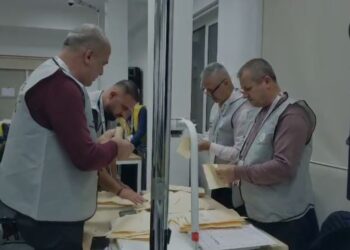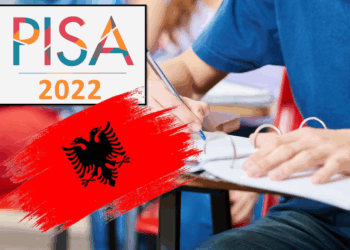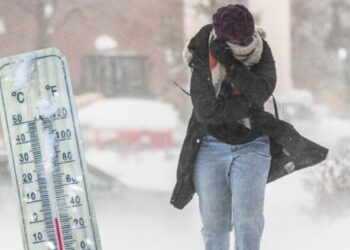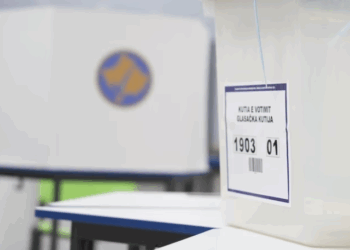Altin Hajri of Shijaku, considered by the Italian authorities as one of the drug bosses in Venice, suddenly turns out to be a regular immigrant.
He was initially questioned that millions of euros have been circulated along with some of the illegal drug activity. Even to him and his brother, both owners of the “Golden” complex in Shijak, Durres, were released several months ago by an international warrant. Albanian police, always inclined to embody as its success any international investigation, transmitted in September 2015 as a seizure of the complex of Hajri brothers. For those familiar with the criminal legislation, in such cases the police only set the locking straps, according to the order of the Court, while the task of arresting the searched persons in this case did not accomplish.
However, while continuing to be searched by the Albanian police on behalf of Italian authorities, Interpol Roma has removed from the search system Altin Hajri. A Venetian Court’s decision has overthrown all evidence of the prosecution’s and neighbor’s state police towards him. This can be considered a spectacular failure of Italian justice, but it is not the only one.
“Boldnews.al” reports that such breakthroughs had occurred in 2015 for at least two cases when Albanian citizens, one of the villages of Kavaja and another in the rural area of Lushnja, were accused of linking to religious terrorism.
The Albanian Police were arrested for the account of the Italians in two separate cases Baki Çoku and Alban Elezi. From the film footage of the Albanian Police, after their arrest, it seemed clear that these two persons, in extreme poverty and with very low educational and intellectual level, could not have any real opportunity to convince, recruit and send other Albanians to fighting alongside the Islamic State in the Middle East.
However, Italian authorities demanded their extradition, as they had evidence that they were involved in the auxiliary terrorist activity.
Under the fever of the International Coalition Against Terror, Albanian authorities acted swiftly and carried out their extradition.
But about 3 months after they were in isolation in Italy, authorities in the neighboring country sent a “pleading” letter to Albania asking for evidence to send them as soon as possible if they had evidence of the terrorist activity of Baki Çok and Alban Elezit. According to Italian investigative authorities, their courts did not accept the evidence and Çoku e Elezi was “jeopardized” to be released. In the simplest terms, their allegations about the links between the two ethnic Albanian villagers linked to terrorism were completely overthrown.
These two cases are another spectacular failure of the Italian authorities, which, if they had happened in Albania, would have very serious consequences.
In fact, between Albania and Italy there are significant problems with extradition, as well as cooperation with the highest volume in this regard.
“Boldnews.al” has learned from the responsible persons at the Ministry of Justice that the concerns in this regard have been made known to the Italian authorities.
The Ministry of Justice finds that in some cases the Italian authorities have sent a copy of the request for extradition by electronic means, not in the form required by law. Also, the Ministry of Justice is sent requests by the Italian authorities beyond the 40-day deadline set forth in the European Convention on Extradition and Albanian Penal Law. For “Boldnews.al”, the competent sources at the Ministry of Justice say that this situation has generated in practice a number of difficulties related to the conduct of procedural actions both by the Prosecutor’s Office and the Court.
The Ministry of Justice notes with great concern that, in some cases, due to delays by the Italian authorities, persons arrested in Albania for extradition have been released due to the passage of procedural deadlines, have been concealed and consequently it is possible to find and hand over these persons, in cases when the extradition was approved by the Minister of Justice.














